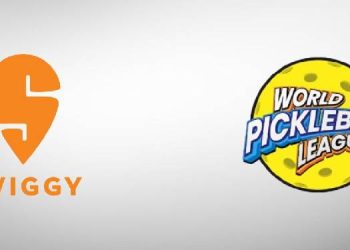Mumbai- Unilever today announced it will eliminate the word ‘normal’ from all of its beauty and personal care brands’ packaging and advertising, as part of the launch of our new Positive Beauty vision and strategy.
Positive Beauty, which sets out several progressive commitments and actions for our beauty and personal care brands, including Dove, Lifebuoy, Axe and Sunsilk, will champion a new era of beauty which is equitable and inclusive, as well as sustainable for the planet.
Using Unilever’s innovation and technology, Positive Beauty will also help to drive a transformation in how our products are designed and formulated so that they do more good for both people and the planet, deliver a superior product experience, and tap into consumer trends.
The decision to remove ‘normal’ is one of many steps that we are taking to challenge narrow beauty ideals, as we work towards helping to end discrimination and advocating for a more inclusive vision of beauty. It comes as global research into people’s experiences of the beauty industry reveals that using ‘normal’ to describe hair or skin makes most people feel excluded.
The 10,000-person study, which was commissioned by Unilever, was conducted across nine countries.
It found that:
- More than half of people (56%) think that the beauty and personal care industry can make people feel excluded.
- People want to see the beauty and personal care industry focusing more on making people feel better, than just looking better (74%).
- More than half of people (52%) say they now pay more attention to a company’s stance on societal issues before buying products.
- Seven in ten people agree that using the word ‘normal’ on product packaging and advertising has a negative impact. For younger people – those aged 18-35 – this rises to eight in ten.
India highlights:
- In India, making products that cater to all people is recognised as one of the most pressing challenges that the beauty and personal care industry should address; only behind making products affordable for all and being transparent on what ingredients are included.
- Almost two in three people in India (64%) agree that the beauty and personal care industry makes certain people feel excluded. Six in ten people in India (59%) say the industry makes certain people feel bad about the way they look and makes certain people feel bad about themselves (59%).
- The beauty industry is seen as contributing to the spread of narrow beauty ideals: over six in ten people in India (63%) agree that the BPC industry shares narrow beauty ideals, and two in three (66%) think that the industry pressurising people into thinking they need to look a certain way contributes to narrow beauty ideals.
- The majority of people in India agree that the BPC industry still has some way to go in representing people of various body types (76%), people from different age groups (77%) people from different ethnicities (74%) and people from the LGBTQIA+ community (67%).
- Over eight in ten people (83%) think that using the word “normal” on beauty product packaging and in advertising has a negative impact on people. This includes making people who don’t feel as though they have “normal hair” or “normal skin” feel excluded or feel bad about themselves.
- The majority of people in India, feel positively about Unilever’s commitment: they agree that removing the word “normal” would inspire them to feel more positive about the way they look (70%), believe that it is the right thing to do (69%), and feel positively about the company behind it (67%).
- The trend is clear: two in three people in India (65%) say they now pay more attention to a company’s stance on societal issues before they buy products than they used to. Six in ten people there (63%) will not buy a product if they do not agree with the company’s vision of D&I, even if the company offers the best price.
- With its commitment, the majority of people in India (71%) think Unilever is working to broaden the definition of beauty in society. Additionally, broadening the definition of beauty is not only the right thing to do for profit but also for people according to seven in ten of people in India.

Sunny Jain, President Beauty & Personal Care, said: “With one billion people using our beauty and personal care products every day, and even more seeing our advertising, our brands have the power to make a real difference to people’s lives. As part of this, we are committed to tackling harmful norms and stereotypes and shaping a broader, far more inclusive definition of beauty.
“We know that removing ‘normal’ from our products and packaging will not fix the problem alone, but it is an important step forward. It’s just one of a number of actions we are taking as part of our Positive Beauty vision, which aims not only to do less harm, but more good for both people and the planet.
“With more consumers than ever rewarding brands which take action on the social and environmental issues they care about, we believe that Positive Beauty will make us a stronger, and more successful business.”
In addition to removing the word ‘normal’, Unilever will not digitally alter a person’s body shape, size, proportion or skin colour in its brand advertising, and will increase the number of advertisements portraying people from diverse groups who are under-represented.
Driving positive change for people and planet
Central to Positive Beauty is the ambition to do more good, not just less harm, for people and the planet. Our decision to remove ‘normal’ from our packaging and advertising is just one action within the set of three commitments we have made to create real and measurable impact:
Taking action through our brands to improve health and wellbeing, and advance equity and inclusion, reaching 1 billion people per year by 2030. They will focus on:
Helping to end discrimination in beauty and champion inclusion, by challenging narrow beauty ideals and building a more inclusive portfolio of products.
Driving gender equity, including stepping up brand programmes, advocacy to challenge the status quo and #unstereotyping advertising.
Improving health and wellbeing through existing educational initiatives in handwashing and oral hygiene and expanding focus into new areas, including physical health and mental wellbeing.
Helping to protect and regenerate 1.5 million hectares of land, forests and oceans by 2030, which is more land than is required to grow the renewable ingredients in Unilever’s beauty and personal care products.
Supporting a global ban on animal testing for cosmetics by 2023, working alongside lawmakers, animal protection organisations and like-minded companies. Twenty-three Unilever beauty and personal care brands are now PETA Approved, with more working towards certification.
At the heart of the delivery of these commitments will be Unilever’s beauty and personal care brands, many of which have a track record of delivering impactful programs and purpose-led growth. More of our beauty and personal care brands will join the likes of Dove, Lifebuoy, Vaseline and Sunsilk by taking action on social and environmental challenges and advocating for the evolution of norms, policies and laws.
Sarah Degnan Kambou, President of the International Center for Research on Women said: “Every day, we see and hear messages about how to ‘fit in’, how to be included in very narrow definitions of what is ‘normal’. In order to champion equity, we need to challenge these restrictive ‘norms’ and create societies and communities that celebrate diversity – and the unique qualities and ideas that each person brings. Beauty is no exception. We look forward to seeing Unilever advance these commitments and hold themselves to the high standards they have set out before them.”
Consumers increasingly expect brands to take a stand on the issues they care most about. Unilever’s brands perceived as more purposeful grew more than twice as fast as the rest of the portfolio in 2020. The company’s research further supports this trend, with the majority of people (69%) saying they will recommend a beauty brand to their friends and family if it caters to a wide range of skin and hair types, while half of respondents would pay more for these products.
Positive Beauty will also accelerate our science and technology programmes and innovation partnerships, driving the continued transformation of how our products are designed and formulated to become more people and planet positive. This includes developing tailored products to serve the diverse needs of people around the world, delivering real and meaningful consumer benefits, backed by cutting-edge science. Innovation will also advance the use of more natural, biodegradable, and regenerative ingredients – alongside continued packaging innovations that use less, better or no plastic.

















